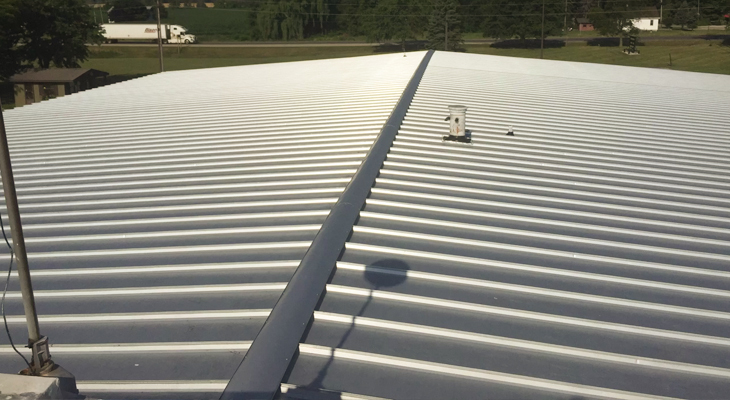
No matter how much money it is worth or how well it is taken care of, no product in the world is perfect. You could be fortunate and never have a problem with whatever you buy, or you might occasionally run into one or more issues. It all just depends. The same applies to metal roofs.
Metal roofing panels are among the most long-lasting and durable building materials on the market today. These roofing systems can survive for many years if all the roof’s parts are placed properly by experienced metal roofing contractors and regular visual inspections are carried out. However, if your panels are not correctly placed, weathertightness issues may arise.
This blog post will cover common metal roof weathertightness issues and some tips on preventing them.
Also Read: Different Ways To Increase The Lifespan Of Your Roof
What Is Weathertightness?
The term “weathertightness” usually refers to a surface’s capacity to withstand harsh weather conditions like rain and snow and keep moisture from accessing the structure underneath. You can save money and time by ensuring that your roofing system is weathertight. This will help you prevent problems like leaks, rot, and other costly and time-consuming effects of moisture.
Some common causes of weathertightness are;
Improper Fastening
All metal roofing systems depend heavily on fasteners. Whether you select a concealed or an exposed fastener panel, it’s crucial to ensure the fasteners are correctly fitted to increase the lifespan of your roof and keep moisture away. You may encounter weathertightness issues if fasteners are pushed in too deeply, too loosely, or at an incorrect angle.
Unnecessary tension on metal panels, broken screws, and water leakage can all result from overdriving fasteners. Your fasteners might be under-driven, making it easier for water and wind to get below the metal panels.
Improper Use Of Sealants
Another crucial part of a metal roofing system is a sealant, which serves as a weathertightness shield for your building. To ensure weathertightness, sealants are necessary for various roof transitions, flashings, and roof penetrations. Only the adhesives designed specifically for metal roofing should be used only when specified by the product’s manufacturer.
The use of an incorrect sealant, improper application, or excessive use of sealant to cover up poor craftsmanship are all sealant-related issues.
The Incorrect Installation Of Roofing Components
If roof components, such as vents, skylights, chimneys, and other penetrations, are not installed correctly, weathertightness problems may occur. To prevent any problems with weathertightness, these spaces must be well sealed and capable of diverting water.
The thermal movement of panels close to these characteristics must also be considered. Metal will move slightly as it expands and shrink as the temperature changes. For these elements to be fitted correctly and prevent moisture or water from seeping into your roofing system, there are certain accessories and installation procedures to follow.
Improperly Designed Roofing Areas
As was previously mentioned, standing water on roofing surfaces can cause weathertight problems with weathertightness since they don’t shed water. Standing water occurs when the roof does not have enough pitch to shed the water quickly.
This problem is caused by improperly designed roofing sections, such as roof transition spots between two roof planes. In addition to concerns with standing water, improperly flashing panel transitions or material lapses can also cause weathertightness issues.
How To Avoid Weathertightness Issues
The two most important tactics for avoiding weathertightness and water infiltration issues are having the roof installed correctly and regularly inspecting it.
Skilled technicians will ensure that the roof is designed correctly to release water and account for roofing penetrations. Qualified contractors who follow the manufacturer’s installation instructions will ensure the system is installed correctly, including the proper use of fasteners, sealants, and penetration accessories.
Any professional can inspect the roofing area before or after project completion to assist in discovering roof system concerns before they become weathertight. Most importantly, regular examination during the roof’s lifespan will help guarantee that problems with weathertightness are discovered early.
Through these inspections, it will be possible to prevent future problems brought on by aging roofs, such as sealant deterioration and treat other maintenance concerns such as the accumulation of leaves in roof transition areas before they affect weathertightness.
About Stahl Roof Systems
We take great pride in providing a wide variety of residential, commercial, and industrial metal roofing services. We are a trained group of industrial roofers with a mission to protect the environment and create long-lasting roofing systems. Stahl Roof Systems is committed to developing and implementing cutting-edge roofing solutions to bring value to commercial and industrial buildings in Edmonton and around Alberta. Learn more about Stahl Roof Systems here.
Need metal roofing services in Edmonton? Contact us now.
